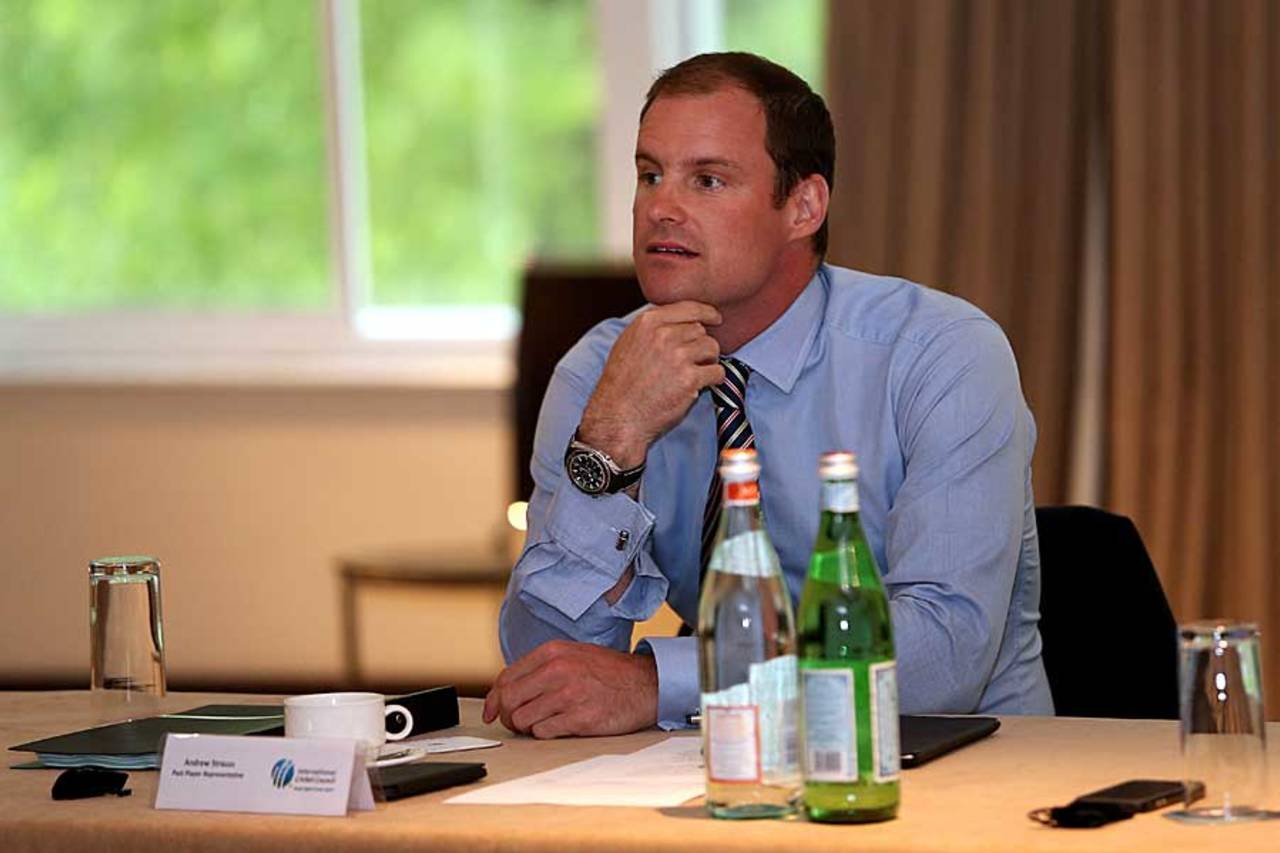What autobiographies tell us
Each era of cricket gets the autobiographies that reflect its culture. So what are the current crop of cricketers saying?
Jon Hotten
Sep 17, 2013, 7:02 AM

How far will Andrew Strauss' book go in exposing the realities of a professional dressing room? • Getty Images
Jonathan Wilson and Samir Chopra last week blogged on the state of the cricket novel. The notion of cricket's literary hinterland in both fact and fiction has also had plenty of attention. But what about the cricketing autobiography? Exactly where are we with that, these days?
Just as every man at 50 has the face he deserves, so each era of cricket gets the autobiography that reflects its culture. By their titles shall we know them. England's modest record and off-field trauma during the gory decade of the 1990s saw its wares pitched in a minor key, with a tentative hint of revelations within: Mike Atherton went for Opening Up, Alec Stewart Playing For Keeps, Graham Thorpe Rising From The Ashes, Nasser Hussain Playing With Fire. One of Phil Tufnell's was called simply You're Having A Laugh, a bravura hook dripping with sardonic potential.
The race to frame the still-nascent lives of the 2005 Ashes heroes resulted in a combination of bullish triumph - Michael Vaughan's Calling The Shots (how long we'd yearned to do exactly that with the Aussies) and Kevin Pietersen's Crossing The Boundary - and the more esoteric creation of a modern myth - Andrew Flintoff's Being Freddie (followed a mere year later by Freddie Flintoff: My World and three years after that by the valedictory Ashes To Ashes), and Duncan Fletcher's Behind The Shades.
The sunlit uplands inhabited by the current side have led to a kind of frictionless banter suggestive of content that must, contractually, have passed through the doors of their employers. Alastair Cook offered Starting Out, Matt Prior The Gloves Are Off, James Anderson Jimmy: My Story. Graeme Swann's publishers were somehow persuaded that The Breaks Are Off was a pun of suitable gravitas for the story within, while Stuart Broad trumped everyone with My World in Cricket, an arrangement of words rather than a meaningful title, and a statement so utterly gnomic that it is almost certainly pinned up on the ECB HQ notice board as an example for future generations.
It was not always this way. One of my favourites as a kid was an ex-library copy of Fred Trueman's Balls Of Fire, a double-entendre worthy of Sid James, and a book that bulged with earthy anecdotes and heavyweight score-settling. Ian Botham's first autobiography was called, with a nod and a wink, Don't Tell Kath. Brian Close produced I Don't Bruise Easily, a book that I remember as a melancholic lament for an only partly realised talent.
Not all are cobbled together by a desperate ghostwriter trapped between his shifts on the sports desk. Atherton and Steve Waugh wrote their own, and they are elegant records of their times, thoughtful books by thoughtful men. Hussain's Playing With Fire is turbulent and heartfelt, while Marcus Trescothick's Coming Back To Me was a brave confessional.
Such books necessarily waited until the end of a career, or at least its international phase. Contemporary publishing is not that patient, because the culture it exists in is weekly, daily, hourly in its demands. The autobiography as a form has suffered from that, and from the desire to create and retain an image. It will be interesting, for example to see how far Driving Ambition, to be published by Andrew Strauss next month, goes in exposing the realities, both explosive and quotidian, of a professional dressing room.
Until then, there is a new generation of English lives to consider. In a few short years we might be reading What The Buttler Saw, Taking Root, Through Thick And Finn, Stoking The Fire and of course It's (Not ) Trott's Fault.
And Michael Clarke is probably signing the contract for the Australian rewrite of Playing With Fire as soon as he gets home.